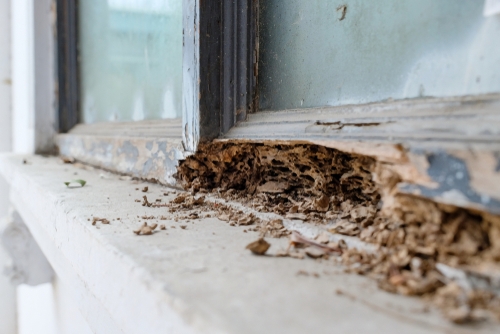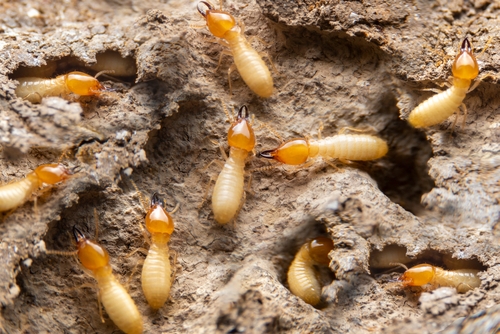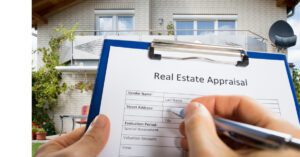“My house is infested with termites” is something you never want to have to say. Thankfully, termites in Guelph are well monitored. This blog will take you through some of things you should know, look for and expect from termites.
As Guelph Realtors, we know the areas to look out for when you’re considering a home in Guelph. Termites can be a costly and life changing insect to find. Therefore, you need to ensure you understand what they are and how they can be best avoided.
Click to go to a specific section:
Where are the termite zones in Guelph?
Do I need a termite inspection
What happens if I buy a home in a zone without an inspection
Do termites decrease property values?
What are termites?
Termites are wood destroying insects, living in large colonies. They can cause serious structural damage to homes if you do not contain and control them. They feed on wood or other dead plant matter, occurring on every continent except Antarctica.
Once classified in a separate order from cockroaches, they are part of the same family. Although these bugs look like “white ants”, they are not related to the ant family.
Termites are small, measuring between 4 to 15 millimetres and are blind as they do not have eyes.
Owing to their wood-eating habits, many termite species can do significant damage to unprotected buildings and homes. Although they play an important role as decomposers of wood and vegetative material, most people do not want to find a termite nest in their walls.
They often remain concealed and therefore undetected wall supports are severely damaged. Of the 3,106 species known, only 183 species cause damage; 83 species cause significant damage to wooden structures.
Termites in Guelph
Introduced in 2007, Guelph’s termite management program helps to control the local population and prevent damage to wood structures. And, reduce the area that these damaging critters are actually active in.
Guelph’s termite control strategy involves inspections, monitoring properties with traps. It also includes a reduction of termite habitat through yard wood management, area-wide colony level suppressive treatments. Additionally, limited use of conventional chemical treatments where necessary.
The City’s Termite Control Officer has the authority to enter properties to investigate. They’ll also prescribe measures to control and limit the spread.
For many years, the area of Exhibition Park on the east side of Woolwich St was the main area. First discovered in the early 70’s in Goldie Mill Park, termites move slowly.
Eventually, the ended up on the west side of Woolwich. They spread to other pockets of Guelph over time as people moved wood or soil that contained termites.
Where are the termite zones in Guelph?
There are 4 main zones within Guelph as identified for 2024:
In 2019 a new discovery of two infested properties were discovered in East Guelph.
Do I need a termite inspection if I’m buying or selling a house in Guelph?
In short, no. Most home sales don’t require a termite inspection as part of the Purchase and Sale Agreement. This is because only the areas outlined above contain termites. In fact, in most areas the red zones and blue zones have been shrinking.
However, are you considering a home that falls within the red areas outlined on the above maps? If so, a termite inspection is required. From our experience, the City of Guelph is very responsive to these requests and they can be done in days.
From the City of Guelph website: “When selling a property owners and/or agents are required to disclose that the property is located in a management area, and obtain an inspection report from the City’s control officer.”

What happens if I buy a home in a zone without an inspection?
This is where working with the best Guelph real estate agent is crucial. In the event that someone sells a home without a termite inspection and the buyer doesn’t request one, there can be liability across the board.
Not disclosing these insects (and potential problems) to a buyer is akin to not disclosing structural issues on a home.
Owning a home in one of these zones is also something you should report to your insurance company. This is regardless of whether your home actually has termites. The last thing you want is a declined insurance claim in 25 years because these insects got into your home.
Most homes impact by these pesky bugs are century homes that are detached homes.
Do termites decrease property values?
That all depends. After reviewing the maps above, if your home is in a white area, you are not in a zone. This would mean that there is no direct impact on your property value.
Live in, or considering buying a home in a blue area? As a result, this adjacent zone means that termite activity is not active in your area, but you are next to an active red zone.
If you are in a red zone, you likely have termites. Although your home may not specifically have them, your neighbours may. And as a result, there is a reduced property value associated. These insects tend to do most damage in areas that you can’t see, many buyers will not want the risk.
There are easy ways to keep these bugs out of your home. The main way: NOT move wood from one area to another, especially if you are moving dead wood or soil. Simply transplanting these bugs to a new area could result in generations of problems.
If you are buying firewood or picking up firewood, be aware of where you’re buying it from. Do not place wood directly on soil wherever possible.
Get in touch
If you have any questions, please contact our team and we’d be happy to answer any questions you may have. We’re Guelph real estate agents who live adjacent to a termite area, so we are familiar with the process.



